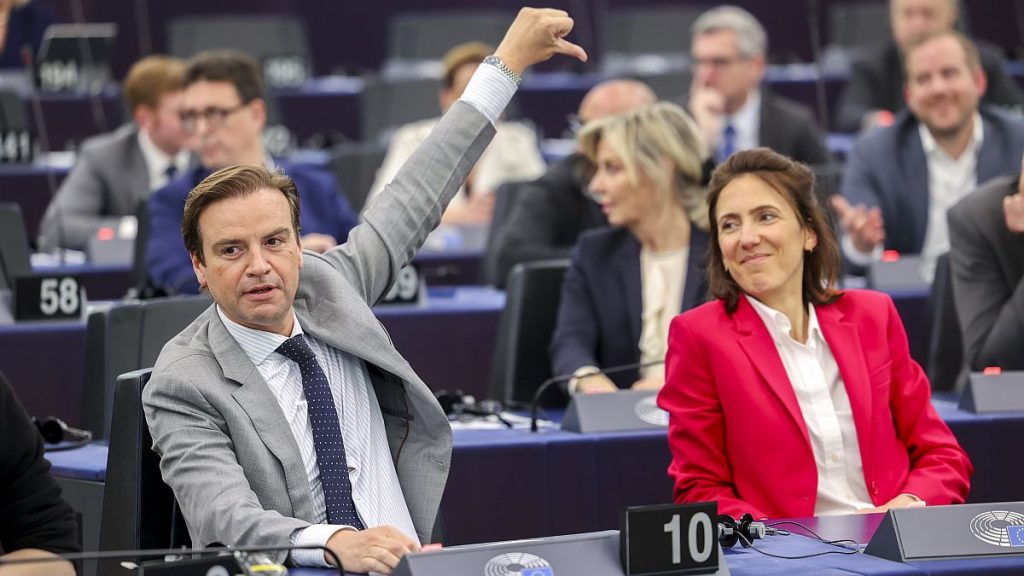The European Union liberals have decided not to expel the Dutch VVD party despite its decision to enter a coalition with the far-right PVV party of Geert Wilders. Renew Europe, a centrist political group in the European Parliament, was set to vote on expelling the VVD party after the elections, but this decision was postponed following a heavy loss of 21 seats by Renew Europe. Instead, the group plans to send an observer mission to the Netherlands to monitor the party’s adherence to liberal principles. The final decision on the VVD party’s status within the group will be made at an Alliance of Liberals and Democrats for Europe (ALDE) council party in Vilnius, Lithuania.
Renew Europe’s decision not to expel the Dutch VVD party comes after a commitment made by the group’s president, Valérie Hayer, to never cooperate or form a coalition with far-right and radical parties. The VVD party, led by outgoing Prime Minister Mark Rutte, announced a coalition agreement with the PVV, New Social Contract, and Farmer-Citizen Movement following November’s general election in the Netherlands. Despite this, no official motion to expel the Dutch party was tabled within ALDE, with party sources stating that such drastic decisions are typically only made in cases involving crimes or investigations. The PVV, led by Wilders, won six seats in the European Parliament and has joined the far-right Identity and Democracy group.
The political landscape in the European Parliament is currently in flux, with negotiations ongoing for the final composition of parliamentary groups. Renew Europe is vying with the far-right ECR group to become the third force in the European Parliament. The decision not to expel the Dutch VVD party raises questions about the group’s commitment to liberal ideals and principles, as well as the internal cohesion of Renew Europe. While some within the party have called for stronger action against parties aligning with far-right groups, the lack of a clear consensus on the issue has led to a postponement of any decision regarding the VVD party’s status within the group.
The controversy surrounding the Dutch VVD party’s coalition with the far-right PVV highlights the challenges facing centrist political groups in maintaining their values and principles while also seeking to build alliances and coalitions in a complex political landscape. The decision by Renew Europe not to expel the VVD party reflects a balancing act between upholding liberal ideals and pragmatically navigating the realities of political alliances. The outcome of the ongoing negotiations in the European Parliament will ultimately shape the future of centrist politics in Europe and determine the balance of power within the legislative body.
Moving forward, Renew Europe will need to carefully consider its approach to working with parties that may not align completely with its values and principles. The decision-making process within the group may come under scrutiny, particularly in light of commitments made by its leadership that may not have been fully consulted within the party. As the European Parliament continues to evolve, centrist political groups like Renew Europe will face increasing pressure to navigate the complexities of a changing political landscape while remaining true to their core values and beliefs.


